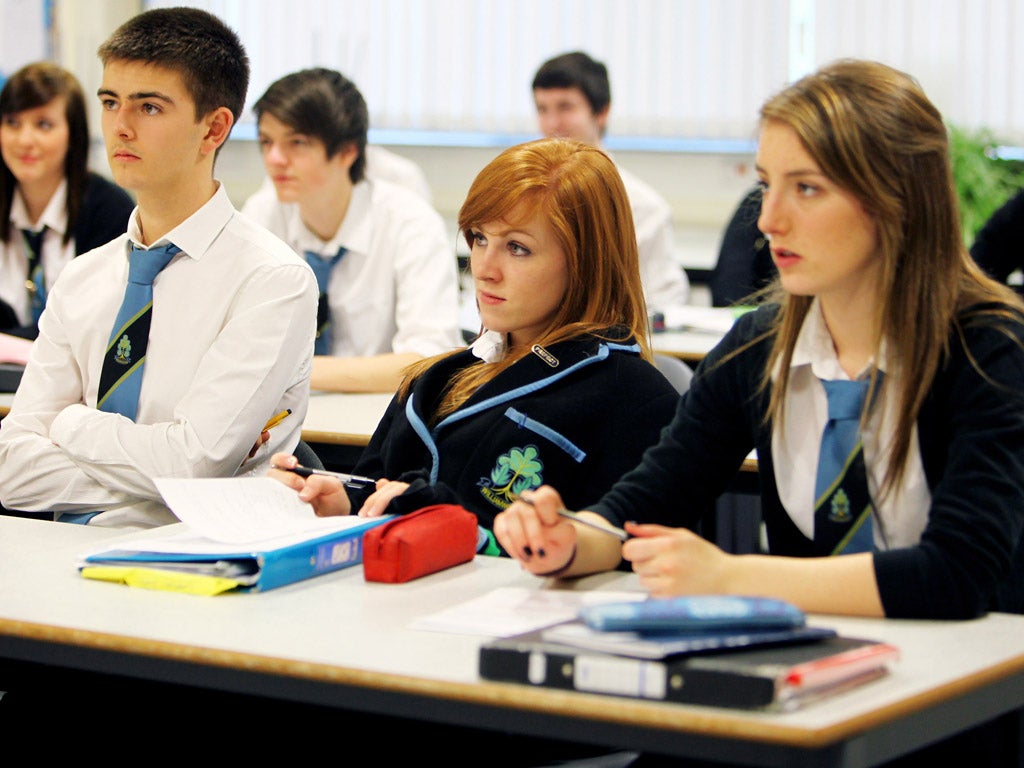Votes at 16: Young people don’t seem to care about politics because politics doesn’t care about them
We have a confused attitude to age, often ignoring young people until it suits us

Your support helps us to tell the story
From reproductive rights to climate change to Big Tech, The Independent is on the ground when the story is developing. Whether it's investigating the financials of Elon Musk's pro-Trump PAC or producing our latest documentary, 'The A Word', which shines a light on the American women fighting for reproductive rights, we know how important it is to parse out the facts from the messaging.
At such a critical moment in US history, we need reporters on the ground. Your donation allows us to keep sending journalists to speak to both sides of the story.
The Independent is trusted by Americans across the entire political spectrum. And unlike many other quality news outlets, we choose not to lock Americans out of our reporting and analysis with paywalls. We believe quality journalism should be available to everyone, paid for by those who can afford it.
Your support makes all the difference.Ed Miliband has now given his support to the Votes at 16 campaign. But the campaign has been met with cynicism by many, from Labour MP Tom Harris, to Tory journalist Charles Moore – the most common arguments being that 16 year olds don’t care about politics, and don’t pay tax.
Leaving aside the fact that many under-18s do pay various forms of tax, and leaving aside the dangerous implications of making voting rights conditional upon how much tax we pay, let’s take a moment to examine the broader dismissal of 16 and 17 year olds at the root of these arguments. It may be true that many under 18s don’t care much about politics, but it’s possible – even likely - that they don’t appear to care about politics because politics doesn’t appear to care about them.
And yet, there are policy areas on which young people will have an important perspective. Some of them are obvious. The constant exam overhauls, the slurs on rising grades, these things directly impact under-18s – as does the financial cost of staying in education. Perhaps it’s not a coincidence that some of the first austerity policies the coalition dared introduce were the trebling of tuition fees and the EMA cuts.
These things are bad enough in isolation. But the jobs market is also a nightmare for young people. 960,000 people aged 16-24 are unemployed. When they do find work, anyone under 20 automatically earns a lower minimum wage (with under 18s earning a lower one still), regardless or need or dependents. And that’s when they get a wage - young people are increasingly placed on unpaid apprenticeships and workfare schemes. All this makes the barriers to education even uglier.
And then there’s the Tory 2015 pledge to take away housing and unemployment benefits from under 25s. The idea that all under-25s can nip back to live with their parents might be marginally less outrageous if the government hadn’t just brought in another policy forcing their parents out of houses with ‘spare’ bedrooms.
And what about young people with more complex needs, like those leaving care? Where will they go? Perhaps George Osborne has an answer. We need to know what it is. If you’re a care leaver and you’re in education, then the state does offer continual forms of support until you’re 25. But if you’re not in education, it stops. What then?
When it comes to measuring the responsibilities of adulthood against age, it’s even more muddled. Young people can join the military at 16, but can’t buy certain video games that simulate war until they are 18. Adult women still have crime experts calling for us to be accompanied or stay inside for our own safety, yet girls as young as 13 get described as “predatory” in court.
Finally, there’s the invisibility young people experience in the NHS. Teenage Cancer Trust found a quarter of teenage cancer patients visit their GP four times before being referred to a specialist. Cancer symptoms in teenagers can be mistaken, even by doctors, for “growing aches and pains” and teenage “grumpiness.”
We must not make the mistake of equating apathy towards politicians with ignorance about important subjects. From GP opening hours to sex education, from electronic cigarettes to police accountability, young people have perfectly well-informed, valid opinions on all sorts of subjects. To ban voting for anyone whose age group includes some less informed or apathetic persons would rule out most adults. And to insist so forcefully that young people have no stake in society is not only condescending – it fast becomes a self-fulfilling prophecy.
Join our commenting forum
Join thought-provoking conversations, follow other Independent readers and see their replies
Comments